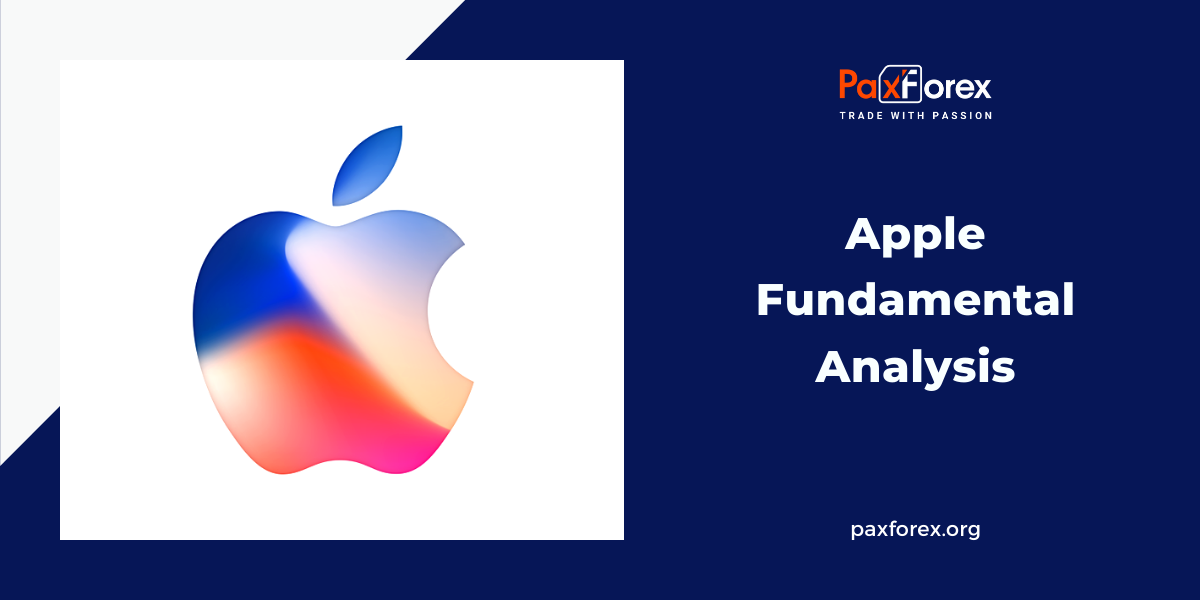
Source: PaxForex Premium Analytics Portal, Fundamental Insight
During 2022, investors are trying to avoid technology stocks as rising inflation has driven down consumer spending. This has called into question the financial prospects of some of the world's most expensive companies.
Apple's stock price has dropped more than 20% since the beginning of this year, but numerous other companies have plunged much more. For instance, shares of AMD and Nvidia, the leaders in PC components, have fallen about 60 percent in the same period.
Against the backdrop of a sharp market decline, technology companies have been under scrutiny throughout the year. Apple was among the casualties as investors took their uncertainty out on the company's stock.
Many tech companies have been hurt as their financial performance for 2022 has flattened from last year, when industry demand hit record highs for many businesses. Quarantine restrictions in 2020 and 2021 helped boost sales across the tech industry as consumers invested in home offices and entertainment devices, buying PCs, game consoles, TVs, and more. Consequently, Apple's stock price hit an all-time high in December 2021.
Nevertheless, the relaunch in 2022 was met with rising costs of living and interest rates, which was a perfect storm for the tech industry and severely reduced consumer demand. Moreover, comparisons to the previous year's exorbitant highs only worsened the drop.
Apple did better than most companies in 2022, but its stock price still fell 14% between Sept. 12 and Oct. 11 amid fears that sales of its newest iPhone lineup were down from previous years. On Sept. 7, Apple unveiled the iPhone 14 lineup, in which the MacBook maker changed its smartphone strategy. The company widened the gap between the base and Pro models, adding several new features to the more expensive iPhone 14, but leaving the lower-tier models pretty much the same as the previous year.
The result was record sales of iPhone 14 Pro models, but low demand for the base versions. The economy models have been the best-selling part of the iPhone lineup in previous years, leading analysts to wonder if the Pro models could sell enough to make up for Apple selling fewer devices overall. For example, on Sept. 29, Wamsi Mohan of Bank of America downgraded his recommendation on Apple stock from "buy" to "neutral" due to weakening demand for the company's smartphones. This revision led to a 5.1 percent drop in Apple's stock price.
In 2022, Apple was seen as a safe asset for investors in technology companies thanks to its capacity to retain more of its market value than most other technology companies. September spooked investors a bit, worried that a slowdown in consumer demand might finally be catching up with the iPhone company. But the company still makes up 41 percent of the portfolio of Warren Buffett's Berkshire Hathaway holding company. The prominent investor's confidence suggests that Apple won't fall forever.
In addition, although Mohan lowered his recommendation on Apple, he said on Oct. 10 that "the long-term outlook remains favorable, but we see additional risk to earnings and valuations in the short term amid declining consumer demand." The analyst also reiterated his long-term confidence in Apple even as he discussed the slowdown in iPad demand after a significant increase during the pandemic.
Beyond that, it's not all bad news for Apple. On Sept. 1, the company overtook Alphabet's Android as the iPhone operating system accounts for more than 50 percent of U.S. smartphones. As Counterpoint's Jeff Fieldhack notes, "operating systems are like religions." Once users get used to one, they are unlikely to switch to another.
A larger market share for Apple is a positive factor because its product range is particularly likely to lead people further into its ecosystem after using only one device. Consequently, the more iPhones in the wild, the more consumers will purchase Apple products going forward.
Apple's stock could fall if consumer demand slows and recession fears intensify. Nevertheless, the company continues to be a great long-term buy. Apple products are among the most popular in their respective markets and will help the company recover. The only question is when.
As long as price is above 134.00, follow the recommendations below:
- Time frame: D1
- Recommendation: long position
- Entry point: 137.84
- Take Profit 1: 147.00
- Take Profit 2: 157.00
Alternative scenario:
If the 134.00 level is broken-down, follow the recommendations below:
- Time frame: D1
- Recommendation: short position
- Entry point: 134.00
- Take Profit 1: 129.00
- Take Profit 2: 123.00













